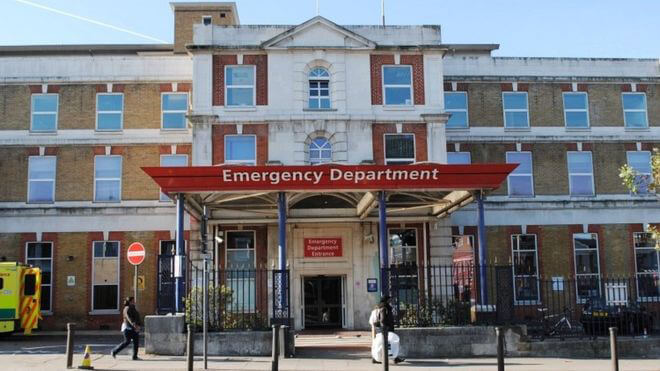
Facilities Managers (FMs) have been instrumental in supporting the daily running of hospitals for decades, ensuring that patients can receive treatment. But times are changing, and the role is becoming increasingly focused on driving efficiency. The global pandemic triggered changes in healthcare settings which FMs had to support, and as we move forward, responsibilities continue to evolve to facilitate hospitals’ carbon reduction plans.
Delivering a Net Zero NHS
The NHS released a report, Delivering a ‘Net Zero’ National Health Service, which reviews carbon reduction progress, and sets new net zero carbon targets. Although the healthcare system has reduced emissions by 62% since 1990, further work is needed to achieve the targeted reduction of 80% by 2028 to 2032. With the help of FMs, the NHS could be the first national health service to successfully transition to net zero by 2040.
The NHS estate, and its supporting facilities services, account for around 15% of total carbon emissions, representing an area in need of significant improvement. According to the report, upgrades to NHS buildings represent a total of 473 4ktCO2e (kilotonnes of carbon dioxide equivalent) in potential emissions savings. Over the next two decades, FMs have a huge role to play in driving energy-efficient changes throughout NHS hospitals and GP surgeries.
Upgrading Buildings to Reduce Emissions
Hospitals are operational, 24 hours a day, 365 days a year, and for this reason, the energy consumption of NHS buildings is responsible for 10% of their carbon footprint. By switching to LED lighting, FMs can reduce energy consumption quickly, and it is estimated that lighting upgrades across the NHS will save more than £3 billion over the next three decades.
Energy management is becoming a fundamental part of the FM’s role, particularly those working at NHS sites. FMs must measure and monitor the energy consumption of HVAC systems, and develop maintenance plans focused on optimising performance. As part of these plans, FMs may optimise air flow, install smart sensors, and retrofit energy-efficient motors and equipment. Delivering a strict PPM (Planned Preventative Maintenance) schedule is also crucial to ensure HVAC systems are operating efficiently, and won’t require unplanned repairs.
Decarbonising Heating
In the past, FMs were responsible for ensuring that healthcare settings were adequately heated at all times, completing any maintenance tasks necessary. Over the years, the carbon cost of heating has been revealed, and FMs are now expected to assess building heating, and reduce the carbon emissions produced.
Heat pumps are an accepted low-carbon alternative which have already found their way into the NHS estate. Gloucestershire Hospitals NHS Foundation Trust secured £13.7 million to invest in environmental projects, including the installation of a heat pump. This low-carbon source of heating can produce hot water, and reduce or remove the need to run boilers, thereby creating cost savings.
With a lifespan of around 20 years, electric heat pumps are a viable option to heat hospitals without the need for fossil fuels, provided green electricity is used. More NHS Trusts will now be looking to install heat pumps to support their environmental goals, and FMs will be crucial in the installation and management of these.
COVID-19 and the NHS
When the pandemic began, the NHS, and other healthcare environments, had to adapt quickly to ensure that services could be delivered with minimal risk of transmission. As a result, FMs have taken on the added responsibility of managing infection control in healthcare settings, thereby protecting staff, patients, and visitors.
To reduce the risk of hospital-acquired infections, FMs must make data-driven decisions about how to enhance air quality using HVAC systems. They must also regularly change HVAC filters, and adjust the air exchange rate in order to circulate the right amount of fresh air around the building.
To ensure the HVAC is running efficiently, FMs must deep clean numerous parts of the system, including the evaporator coils and AC ducts. Deep cleaning is required more frequently due to the pandemic which brings the increased need for good air quality. If you’d like to learn more about how HVAC systems promote infection control in healthcare, read our article.
Health and Safety Regulations
Working closely with the hospital team, the modern healthcare FM is also focused on ensuring hospitals are compliant with health and safety regulations. During audits conducted by health authorities, FMs support the hospital trust in an advisory capacity, compiling various reports which demonstrate compliance.
Another key area of compliance in healthcare is developing a water management plan and risk assessment, to prevent legionella. FMs must ensure that the legionella risk assessment is a living document which is regularly reviewed and updated, to guarantee safety, and provide evidence during health and safety inspections. Hospital Trusts expect to receive regular updates from their FMs regarding compliance, and any compliance-related tasks must be prioritised.
Summary
As the NHS and other medical institutions tackle carbon emissions, the responsibilities of FMs are evolving beyond traditional maintenance tasks. Healthcare FMs must prioritise infection control, and support the delivery of carbon reduction strategies, through various building upgrades and maintenance plans.
At Artic, we specialise in maintaining facilities, while supporting a transition to net zero. Our energy management team will develop and deliver a tailored carbon reduction plan for your organisation, which will reduce your long-term energy bills. Our projects team is experienced in the installation of low-carbon technologies, including heat pumps and electric industrial boilers, driving huge energy savings. We’ll ensure your organisation is compliant with building regulations, and the latest environmental legislation, while cutting your building’s running costs.
If you’d like to discuss how your organisation can reduce its carbon footprint, please contact us.
Share This Story!
If you're looking to partner with Artic Building, then please complete the Working With Artic form here.
Do you have an upcoming project or tender? Then please complete the form below.

